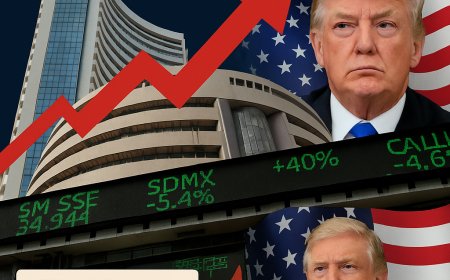Sharif calls Pahalgam attack 'unfortunate', accuses India of destabilising regional peace
Pakistan PM Shehbaz Sharif calls the Pahalgam terror attack "unfortunate" but blames India for destabilizing regional peace. India's MEA counters sharply amid rising tensions.

Pakistan PM Sharif Reacts to Pahalgam Attack, Blames India for Regional Instability
In the wake of the recent terror attack on a bus carrying Hindu pilgrims in Jammu and Kashmir's Pahalgam area, Pakistan’s Prime Minister Shehbaz Sharif has condemned the violence but simultaneously accused India of contributing to what he termed as "regional instability."
In a press conference held in Islamabad on Friday, Sharif described the attack that left nine people dead and several others injured as "deeply unfortunate," but went on to criticize what he called India's "repressive policies" in Kashmir. "While we denounce violence against civilians, we cannot ignore the decades of oppression and marginalization imposed on the Kashmiri people," he said.
The Pahalgam Attack: A Quick Recap
On July 3, suspected militants ambushed a bus transporting pilgrims returning from the Amarnath Yatra. The vehicle, reportedly without security escort, came under heavy fire near Pahalgam, leading to a crash into a gorge. Security forces have since launched an extensive combing operation in the region to identify and neutralize the attackers.
Indian officials, including Home Minister Amit Shah, have condemned the attack and assured justice. Preliminary investigations indicate the involvement of Pakistan-based terror groups, with the Indian Ministry of External Affairs calling it "a brutal and cowardly act meant to instill fear and disrupt peace in Jammu and Kashmir."
Sharif’s Diplomatic Messaging: A Balancing Act?
Sharif’s remarks appear to tread a careful line—condemning the violence while attempting to shift focus toward the broader Indo-Pakistani geopolitical dynamics. "India’s actions in Kashmir are the root cause of recurring unrest," the Pakistani premier added, urging international bodies to intervene to "protect the rights of the Kashmiri people."
Analysts suggest this response is consistent with Islamabad's long-standing approach of deflecting responsibility for terror activities allegedly launched from Pakistani soil, instead framing them as consequences of India's internal governance.
"Pakistan often uses such statements to shift the narrative from cross-border terrorism to human rights in Kashmir," said Professor Rakesh Gupta, a South Asia security expert at Jawaharlal Nehru University. "However, this fails to acknowledge its own lack of action against militant networks operating within its borders."
India’s Diplomatic Counter
India responded strongly to Sharif’s accusations. In a press statement, MEA spokesperson Randhir Jaiswal said, “Pakistan’s attempts to politicize this horrific tragedy are unfortunate and reflect a consistent pattern of denial and deflection. The facts on the ground speak for themselves.”
New Delhi has called on the global community to hold Islamabad accountable for providing safe havens to terror outfits like Lashkar-e-Taiba and Jaish-e-Mohammed, which have been repeatedly implicated in attacks on Indian soil.
Geopolitical Fallout and Investor Concerns
While direct market impact from such cross-border rhetoric is typically minimal, persistent tensions between the two nuclear-armed neighbors often cast a shadow over regional stability and investor sentiment.
“Whenever there is a spike in Indo-Pakistani tensions, we see an immediate risk-off sentiment across South Asian markets, particularly in defence, tourism, and infrastructure sectors,” said Aditi Banerjee, geopolitical strategist at Motilal Oswal Financial Services.
Indian markets have so far remained relatively stable post the Pahalgam incident, with the Nifty50 and Sensex posting marginal gains. However, experts advise caution. "If the situation escalates, we may see flight of foreign institutional investment (FII) from emerging markets in the subcontinent,” Banerjee added.
International Reaction and Regional Peace
The United Nations and several global leaders, including the US State Department and EU representatives, have condemned the attack and extended condolences to the victims’ families. The White House press briefing stated that "civilian lives must be protected and any act of terror is unacceptable."
However, international bodies have remained largely silent on Sharif’s claims, choosing instead to focus on anti-terror cooperation and humanitarian support.
Some diplomats believe this presents an opportunity for renewed dialogue between India and Pakistan. “Tragedy sometimes opens doors for diplomacy, but only if both parties are willing to act in good faith,” said Michael Kugelman, Director of the South Asia Institute at the Wilson Center.
Looking Ahead: Will Peace Take Root?
India's firm security posture in Kashmir and Pakistan's diplomatic offensive signal a continued deadlock rather than resolution. Nevertheless, observers note that both countries face growing economic and climate-related challenges that could eventually compel them toward cooperation.
“Peace dividends are real, and the younger demographic in both nations increasingly favors economic prosperity over conflict,” said Tania Ahmad, South Asia analyst at the Economist Intelligence Unit. “But achieving that will require both political will and mutual trust—currently in short supply.”
For now, while the region mourns the loss of innocent lives, the rhetoric on both sides is likely to harden. Investors and policymakers alike will be watching closely for signs of either escalation or de-escalation.
What's Your Reaction?
 Like
0
Like
0
 Dislike
0
Dislike
0
 Love
0
Love
0
 Funny
0
Funny
0
 Angry
0
Angry
0
 Sad
0
Sad
0
 Wow
0
Wow
0












































































